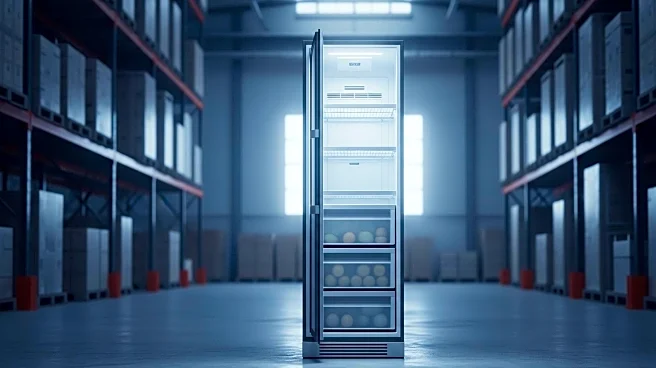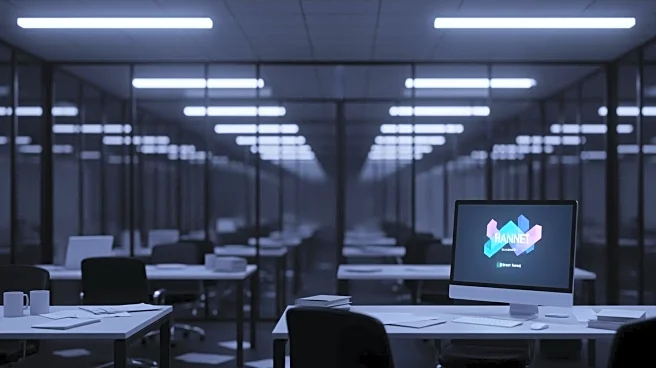What is the story about?
What's Happening?
Refrigeration has transformed the global food supply chain, enabling the transportation and preservation of perishable goods across vast distances. This development, known as the cold chain, involves the continuous refrigeration of food from production to consumption, ensuring freshness and safety. Nicola Twilley, a food journalist and author, explores the history and impact of refrigeration in her work, highlighting key figures such as Gustavus Swift and Polly Pennington who pioneered these technologies. The cold chain has facilitated the availability of diverse food products, such as raspberries from California and butter from New Zealand, in local markets worldwide. However, the widespread use of refrigeration also raises concerns about potential environmental and economic challenges.
Why It's Important?
The cold chain is a critical component of the modern economy, supporting global trade and food security. By enabling the long-distance transport of perishable goods, refrigeration has expanded consumer access to a variety of food products, contributing to dietary diversity and nutritional improvements. Economically, it supports industries reliant on the export and import of fresh produce and meats, driving growth in agriculture and retail sectors. However, the environmental impact of refrigeration, including energy consumption and greenhouse gas emissions, poses challenges that need addressing. Balancing the benefits of refrigeration with its ecological footprint is crucial for sustainable development.
What's Next?
As the demand for refrigerated goods continues to grow, innovations in energy-efficient refrigeration technologies are expected to play a significant role in mitigating environmental impacts. Policymakers and industry leaders may focus on developing sustainable practices and regulations to reduce the carbon footprint of the cold chain. Additionally, advancements in alternative cooling methods and renewable energy sources could reshape the future of refrigeration, aligning economic growth with environmental sustainability.
Beyond the Headlines
The cultural implications of refrigeration extend beyond economic and environmental factors. It has altered food consumption patterns, influencing culinary traditions and preferences. The ability to access a wide range of international foods has enriched cultural exchanges and global cuisine. However, it also raises ethical questions about food waste and resource allocation, as refrigeration can lead to overconsumption and disposal of surplus goods.
















